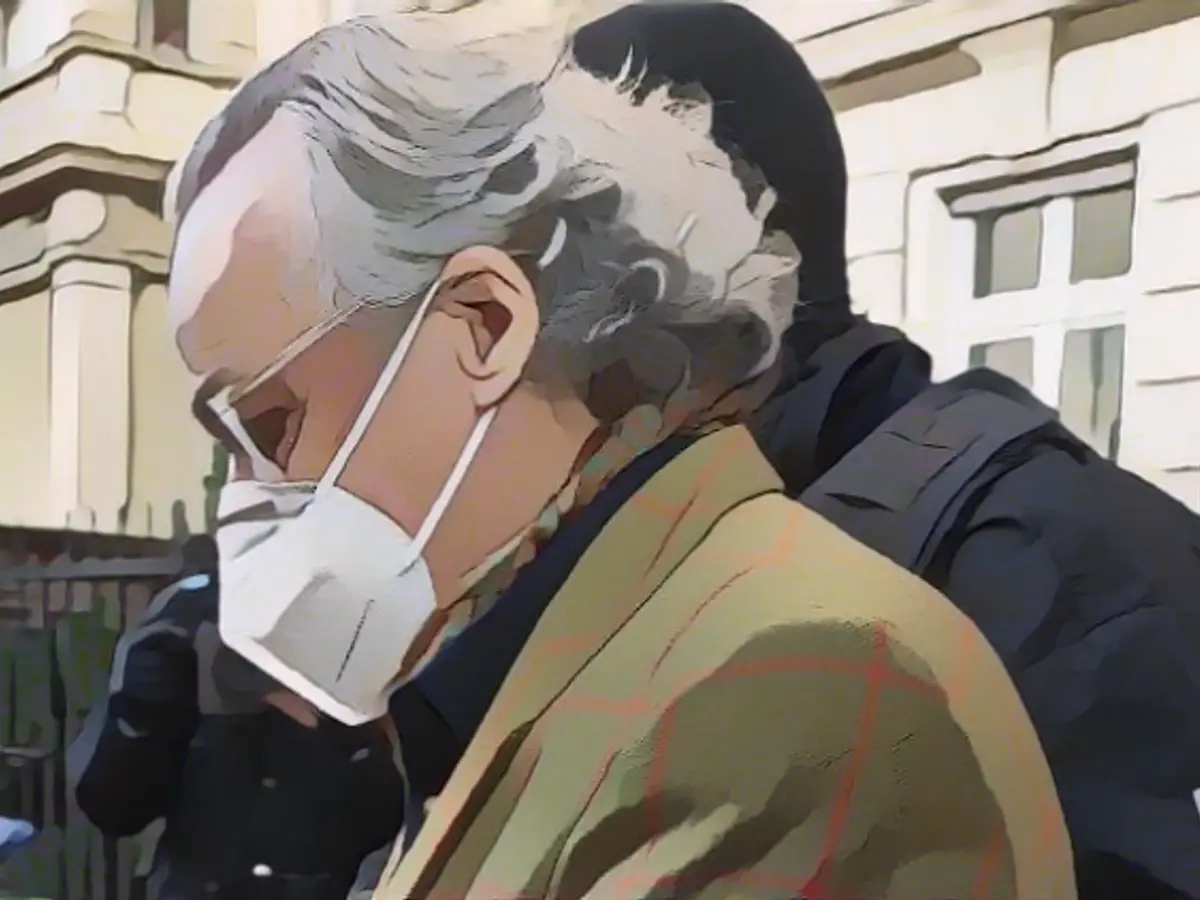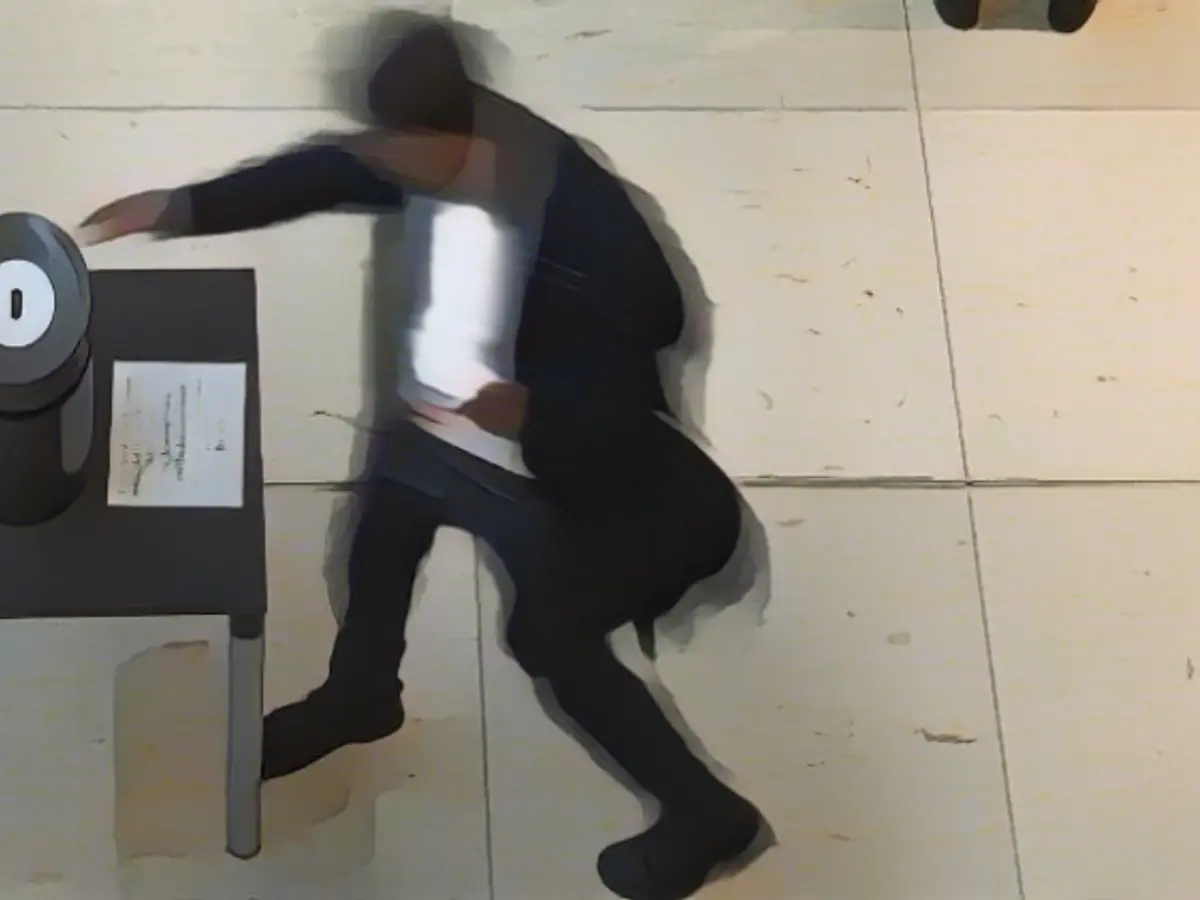What Was the Reichsbürger's Plan for Germany?
The accusations against the Reichsbürger network, including its supposed ringleaders Prince Heinrich XIII Reuß and Rüdiger von P., are quite alarming. They stand charged with plotting to overthrow German democracy and replace it with their own form of government. Let's delve into these claims and get a better understanding of what they allegedly intended.
What Were the Accusations?
According to the Federal Public Prosecutor's Office, the Reichsbürger's main goal was to subvert the existing order in Germany and establish their own government. They reportedly planned to use violence to achieve this objective, even acknowledging the possibility of fatalities.
The organization, which was established in the late summer of 2021, was charged with multiple offenses. These included membership in a terrorist organization, founding one, high treason, weapons offenses, and preparation of a serious act of violence against the state. Several individuals were arrested and faced these charges at both the local and federal levels.
Ideology and Beliefs
The accused Reichsbürger adhered to a variety of conspiracy theories, such as those prevalent among the Reichsbürger and QAnon movements. They believed in the existence of a so-called Deep State, which they claimed secretly governed the country. They anticipated a hostile attack by this alleged secret society, consisting of foreign governments, armed forces, and secret services on "Day X".
Their solution was to eliminate key institutions and authorities at various government levels, only to later replace them with their own.
Organization and Structure
The network reportedly had a central committee, or council, modeled after a government cabinet. This council was supposed to serve as a transitional government during the overthrow and subsequent installation of their new regime. In addition, they allegedly developed a military arm designed to enact the violent takeover through force.
Post-Coup Plans
The council was to negotiate the new state order with the victorious Allied powers from World War II. However, from the Reichsbürger's perspective, only Russia represented a significant point of contact.
Preparations and Implementation
As per the Federal Public Prosecutor's Office, the group was preparing to establish a comprehensive domestic security system consisting of 286 homeland security companies. These units were expected to be militarily organized and aid in the overthrow.
Certain members attempted to recruit active or retired police and military personnel for their cause, as well as compile "enemy lists". The group reportedly explored Bundestag properties and acquired substantial funds and weapons, including close to 380 firearms, 350 cutting and stabbing weapons, and 500 other weapons.
The Unexpected Turn
Consequently, raids were conducted by the German police, resulting in the confiscation of several weapons from the accused's homes. One individual, Markus L., was even charged with attempted murder and aggravated assault after shooting at police officers during their search of his residence.
On a lighter note, a Russian national, Vitalia B., was also accused of supporting and aiding the movement, having allegedly connected Reuß with the Russian Consulate General in Leipzig.
The Present and Future
The higher regional courts in Frankfurt am Main, Stuttgart, and Munich are scheduled to review the charges. While the process typically takes several months before main proceedings commence, the courts in Frankfurt and Munich have expressed cautious optimism about moving forward with the case.
Additional Insights
During their investigations, German authorities uncovered further details about the plot, such as the planned kidnapping of Health Minister Karl Lauterbach, an attack on power infrastructure, and an authoritarian government system based on the German Empire. Officers also revealed links between the group and neo-Nazi networks, as well as the influence of QAnon conspiracy theories.
- The plot was allegedly headed by Heinrich XIII, Prince of Reuss, a known admirer of the monarchy whose antisemitic beliefs point to the Rothschild dynasty as the root of societal issues.
- A prominent figure in the movement, Rüdiger von P., played a critical role in its development and was implicated in weapons offenses and the planning of acts of violence against the state.
- Numerous active and retired military personnel appeared to support the movement, with at least 15 individuals being part of the militarily organized cell.
- The Reichsbürger network extensively employed digital communications to spread propaganda and radicalize new members, especially during the COVID-19 pandemic.
- During their raids, German police confiscated several significant weapons and discovered that the group had conducted multiple firearms training sessions since November 2021 to prepare for the coup.
- The arrests and charges against five individuals, which occurred between April and October 2022, have raised concerns about the growing threat of political extremism in the country.
Ultimately, the German authorities must continue to monitor and address the threat posed by the Reichsbürger network, taking steps to protect democratic values and prevent violence.








